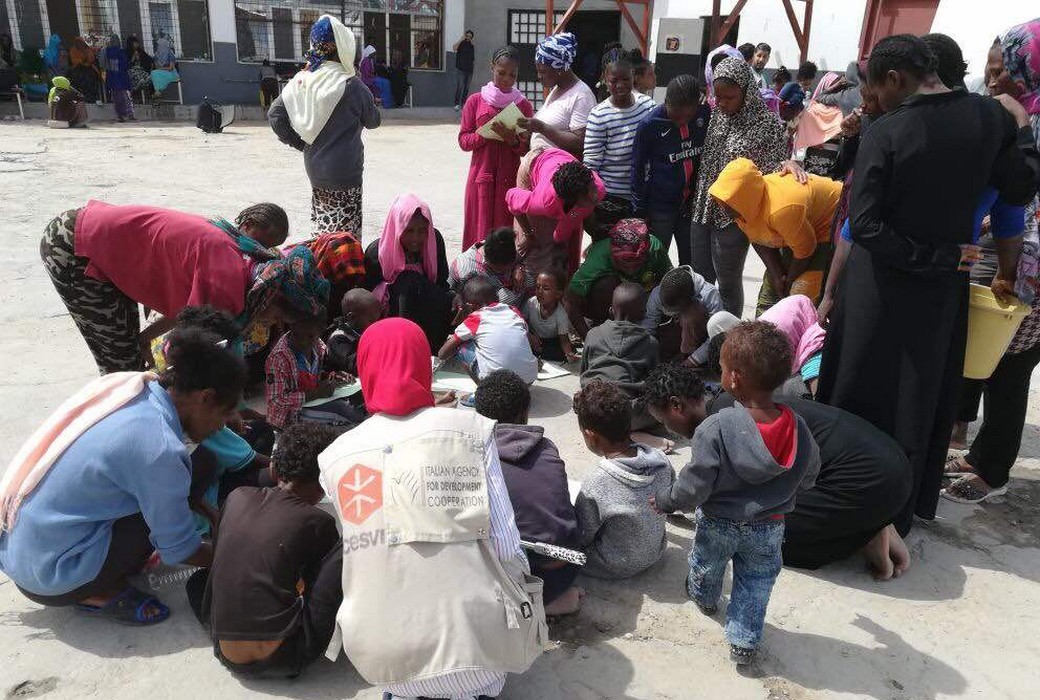Cesvi has been operating in Libya since 2011, when – after the Arab Spring popular uprisings – it entered the country as the first Italian organization. Since then, our intervention has gone through many different phases in order to respond to the local needs that changed as well as the context itself.
During the civil war, our efforts were focused on the humanitarian aid; now, we aim at protecting the most vulnerable categories: refugees, asylum seekers, migrants and IDPs, all victims of the ongoing violence which has been affecting the country for years.
Our latest intervention is funded by the Italian Agency for Development Cooperation (AICS) and aims to enhance the living conditions of refugees and migrants in the Detention Centers of Tariq al Matar, Tariq al Seqa and Tajoura (Tripoli). The extremely bad living conditions (overcrowding and poor infrastructures) can worsen their health and psychosocial wellbeing, which are already at risk because of the traumatic events experienced during the journey.
Through the profiling activities we collect information on the identity, history and needs of the detained people. We try to identify the needs of each person as, for instance, the need of a specialized psychosocial support. The victims of torture, human trafficking or gender-based violence always need this kind of support.
Our specialized operators work to help the identified people directly, or refer them to other organizations working in the Detention Centre, for example for providing them with medical services.
When people are particularly vulnerable – e.g. unaccompanied minors –, Cesvi refers the case to the UN agencies that are responsible for the release request. It is what happened with Bereket, 5 years old.
Bereket
Bereket (invented name) is a 5-year old deaf-mute child from Eritrea. His mother tried to bring him to Europe to obtain the medical assistance he could not have in their home country, but they were stopped in Libya and closed into a Detention Centre.
The handicap makes it difficult for Bereket to interact with the other children: also, since he started living in the Centre, his conditions have worsened a lot from a psychological and emotional point of view.
Cesvi’s staff has referred his case to the competent UN agencies, offering psychological support to both the child and the mother.
The UN intervention and their pressure on the Centre’s authority resulted in the release of Bereket and his mother. Now they are in a safe space, where they are waiting to receive adequate medical assistance.
Photo: activities for children in a Detention Centre.
